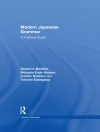Language is on display all around us, all the time, and the study of this linguistic landscape is one of the fastest-growing areas of research in applied linguistics. This book provides an overview of how the field of Linguistic Landscape Studies has emerged and developed over the past 20 years, combined with an in-depth exploration of the theoretical approaches, innovative research methods and major themes that have been central to this dynamic area of research. Written by two authors who have been involved in the field from its inception, the book features summaries of studies from around the world, a discussion of the future of the field, and an analysis of the impact of linguistic landscape research on language policy, language learning and teaching, and minority language revitalization. It will be an invaluable companion for students and researchers in Linguistic Landscape Studies, as well as to those working in related areas.
The book is open access under a CC BY NC ND licence.
Table of Content
Figures
Preface
Chapter 1. Introduction: Captivating Studies of Language in Public Spaces
Chapter 2. History: Early Stages of an Emerging Field
Chapter 3. Theoretical Approaches: A Range of Perspectives
Chapter 4. Research Methods: Quantitative and Qualitative Approaches
Chapter 5. Photography and Other Distinctive Research Methods
Chapter 6. Multilingualism is All Around Us
Chapter 7. The Visibility of Minority Languages
Chapter 8. The Influence of Language Policies
Chapter 9. English Can Be Seen Everywhere
Chapter 10. Educational Contexts
Chapter 11. What’s in the Names?
Chapter 12. Expanding the Field of View
References
Index
About the author
Durk Gorter is Ikerbasque research professor in the Department of Education Sciences at the University of the Basque Country, UPV/EHU, Spain. He conducts research on multilingual education, European minority languages and linguistic landscapes; topics on which he has published widely.












